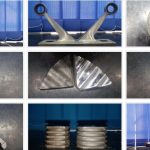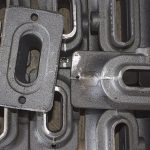Aluminium Vs Steel: Choosing the Right Alloy for Custom Casting Process
No everyone has expert knowledge about the casting process. Metal is strong and durable, which the casters melt and manipulate to make custom products. You can produce them in different shapes and size, ranging from structural components to industrial machinery. Hence, you should be careful while choosing metals for casting alloy.
In today’s market, aluminium and steel are the strongest contenders. Most common alloys are expandable moulds with great bend and weldability, mymedic.es but there is no dearth of grade for steel and aluminium alloy. You can also know about their benefits and drawback from the alloy cast iron casting manufacturer.

Important Factors to Consider
1. Weight
Steel is harder than aluminium, while aluminium metal is denser than steel. Facts state that aluminium is almost 2.5 to 3 times less dense than steel. This lower density of the alloy translates into a notable weight advantage.
Most aluminium alloys scratch or dent easily than steel. Steel shows greater strength and has low chances of deforming, wrapping or bending from heat or force.
Products made from aluminium alloy shows improved strength and stiffness, with increased material in some areas. Despite this, it still maintains a lighter weight.
2. Corrosion Resistance
One great attribute of aluminium is that it is lightly corrosion resistant. It does not have any coating or paint that will wear off or scratch. For steel or carbon steel, you have to paint to prevent rust and corrosion. It is required in areas that are damp or have high moisture content.
Aluminium can withstand external environmental factors; however, it is a myth that it does not corrode. If you place it in an acidic environment, it will erode faster than other alloys.
3. Strength and Malleability
Steel is stronger than aluminium, while the latter is more elastic and malleable. Some aluminium alloys are stronger than steel. However, you can create complex shapes with aluminium instead of steel, like parts with straight walls. Steel is tough and highly resilient; however, you cannot push it beyond certain dimensional limits.
4. Heat Resistance
Aluminium has a low melting temperature than steel. This is why products made from aluminium alloy is not extremely heat resistant. Steel alloy does not melt until it reaches the maximum temperature of 2500 degree F. Aluminium will start softening at 900 degrees F. Also, you can steel alloy for making high heat applications.
Consult Huston (India) Pvt. Ltd. for metal alloy casting products. A reputable manufacturer and supplier of all types of casting, their products are appreciable for high tensile strength, durability, dimensional accuracy, performance and seamless finishing.




